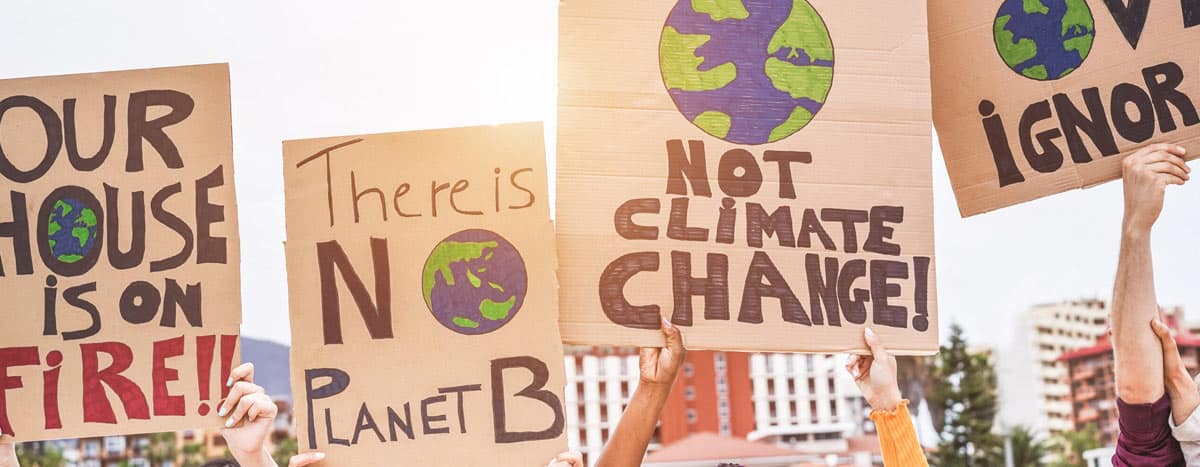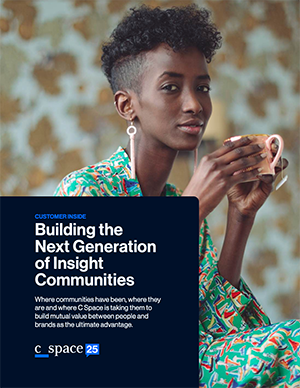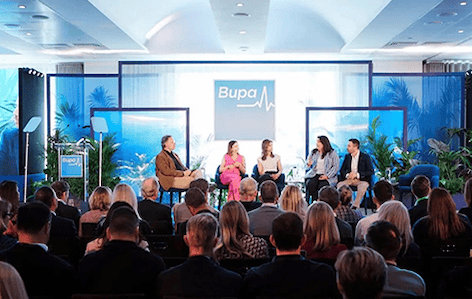April was Earth month, and it wrapped in the looming shadow of the IPCC’s ‘final warning:’ the planet’s temperature is rapidly approaching such high levels that, without fast action, a threshold will be passed in as little as ten years that will mean it’s too late to prevent the worst of the future human disaster: huge areas of the planet becoming uninhabitable as a result of heatwaves, drought, floods, fires, and the mass migration that will follow delivering a stark climate injustice.
While the EU and 194 member states have signed the legally binding Paris Agreement to reach net zero by 2050, businesses are starting to feel the heat to reduce their impact. Some are being hit by regulation, others caught in the undertow of those looking to slash suppliers’ scope 3 emissions. In parallel, 88% of consumers across the UK and USA want brands to help them to live more sustainably and nearly half feel that brands are making it harder to do so, rather than easier.
Many businesses do appear to be stepping up. Applications for B Corp* status and to verify net zero targets with the Science Based Targets Initiative are at an all-time high; in 2021 the SBTi validated more targets than in the previous six years, combined.
Leaders have clocked that they have a duty, if only on paper. In the largest CEO study on sustainability ever conducted by the UN Global Compact and Accenture (more than 2,600 CEOs surveyed in 128 countries), nearly all CEOs (98%) agree that sustainability is core to their role.
Despite all of this, Accenture found that nearly all of the world’s biggest businesses will miss their own targets unless they double the rate of carbon emissions reductions by 2030.
How is this mad scramble hitting insights?
In the insight industry, we are in a particularly privileged position because, no matter how leaders feel about the shift, they have questions. Lots and lots of questions.
- “How do I mobilize a workforce that doesn’t want to change?”
- “How am I supposed to make sustainability commercially viable when I don’t trust that people will pay more for sustainable options?”
- “How do I turn this from a logistical and strategic burden into an opportunity for progress and innovation?”
- “How do I collaborate and compete at the same time”
It’s inescapable, but easy to forget, that businesses sit in different places across the adoption curve, just as we do in our private lives. Some businesses will be way ahead, while others are just starting out on their journey, with some brave person adding it to their remit, on a steep and lonely learning curve.
And within businesses, employees are at different points on the adoption curve, too, with some begrudging the interruption, while others are drooling over the potential opportunities for systemic change.
The fact that not everyone is in the same place is important for us in agencies. It changes the role we need to play as trusted advisors and insight specialists. We need to find a way to support a range of clients in different ways, often stepping up to help educate clients, while also upskilling our own teams. Whatever the role, it’s clear that we need a point of view on what good looks like when it comes to bringing the customer into the conversation.
So, what can insights do?
We posit that we’re entering a new age: The Relationship Era, where success is created through a mutual value exchange between businesses and its customers or stakeholders.
We believe, and can prove, that stronger relationships genuinely build stronger businesses.
But what do we mean in terms of ‘building relationships’ in the context of climate?
It’s a tough one, because, as individuals, we’re really bad at expressing how our aspirations translate into clear needs (as evidenced by that pesky value/action gap) and we are forced to ‘pick a lane’—to focus on solutions that we believe are more or less sustainable, even when they continue to be debated. We understandably don’t have a lot of patience for nuance but unfortunately, much of sustainability sits in hazy ambiguity where we’re not really sure what the ‘right’ thing is to do and we often can’t be bothered to work it out. And we may think we’re acting rationally, but our decision making is peppered with a web of indestructible biases and limitations. Customers clearly need more help and the brands that can provide a clearer way forwards will win their attention.

Human beings have strong dramatic instinct toward binary thinking, a basic urge to divide things into two distinct groups, with nothing but an empty gap in between. We love to dichotomize. Good versus bad… and we do it without thinking, all the time.
So, how do we create a way forwards that digs us out of the complexity, delivers solutions that can really speak to people, while also reducing our impact?

To answer this question, we need to take another look at how the sustainability story is told.
As evidenced by my opening paragraph, the future is, quite frankly, miserable.
It can feel existentially terrifying, but also it can feel clinical and quite dull. The net effect of this is that we are looking at a future that feels distinctly ‘less than.’ It might be one of the most retold quotes of our times: that this is the first time in history that we don’t feel the future will be better for our kids. Acting on climate change is crucial but feels rife with compromise, trade-offs, sacrifice, complexity and contradiction.
However, there is another future worth paying attention to
The day before lockdown in 2020, a few of us in the Insight sector formed the Insight Climate Collective to look at the role and response on the industry’s in light of the climate emergency.
A year later, we partnered with the Purpose Disruptors (this time formed of advertising folk, eager to work out how they can shift the dial), to run some qualitative work using the brilliant Britain Talks Climate work from Climate Outreach.
The aim of the work was to create a piece of thinking that would help the advertising industry to shift mainstream sustainability narratives in realization of the fact that something just isn’t working.
The work was updated in 2023 and looked, quite simply, at what people want from the future. It wasn’t really about sustainability, it was just about hope and contentment and our expectations of a future world for us and our kids.
The insights are devastatingly simple. We don’t just want to survive the future, we want to thrive. The mother of all deprivation tasks—the lockdown—helped us to stop and reflect and sharpened our priorities.
What makes us happy isn’t necessarily more stuff, a bigger house, a fancy job title. And, by the way, it’s also not ‘lower carbon emissions,’ or a circular economy. It’s human stuff, but supercharged—spending time with our loved ones, breathing clean air, really looking after ourselves.
So far, so predictable, maybe, but it represents a particular shift post-lockdown. In the future, we want more what we love, and less of what we don’t. We want less buying and more being; we’ve moved from wanting to have it all, to doing more with less; we want better relationships with those around us, moving from loose ties to being close knit. We want to look after ourselves and each other, better.
And here’s the rub. Sustainability isn’t the point; it’s purely a means to an end.

Most, if not all, measures to address climate change actually improve quality of life.
So sustainability doesn’t have to feel less than, and people and planet are not two separate things. There’s a reason that the NHS was the first health service in the world to commit to Net Zero—and 10 years earlier than the Paris Accord mandates. It’s because they understand that the climate emergency is also a health and wellbeing emergency. Moreover, by creating a climate injustice where the most vulnerable suffer disproportionately, climate change is also closely related to the cost-of-living crisis and increases in wealth inequity. So, activities to reduce carbon emissions can have very clear and tangible benefits for all individuals and societies in this future Good Life.
Unless we reposition action on climate change as generating both short and long term benefits, rather than presenting it as a feature in its own right, it will always fail to really grab us.
In case this isn’t landing, let’s simplify it even further:
We’re humans. Talk to us about how climate action can benefit us and our loved ones and improve our quality of life—and we might just start to care and behave differently—and choose your brand to be one of many that we go on that journey with.
As with anything, we want the toast, not the toaster. The entire automotive industry was not built on selling people the dream of an internal combustion engine, we talked about traveling faster, smoother, in a hunk of junk that made you proud. We have to stop asking people if they’re thinking about sustainability when they head into the store in the same way that we don’t draw attention to the battery as people head into an EV showroom to buy a motor.
Marketing is the generous act of helping others become who they want to become.
The concept of benefit-driven marketing is as old as marketing itself. It’s fundamentally what marketing exists to do. And yet, time and time again, we see that we’re not doing it when it comes to sustainability, possibly because it just takes a little more effort to link the action with the benefit. So, let’s look at some examples:
What if we’re…
- Wasting less? We’re buying only what we need, using our food up and throwing less away. Yes, we reduce emissions and the release of trapped methane from rotting organic matter, BUT ALSO, we’re saving money and reducing production.
- Switching to renewables? We’re reducing pollution, BUT ALSO reducing our reliance on imported fuels and increasing competition, which helps to drive the cost down
- Buying pre-loved goods, or repairing and reusing existing items? We’re supporting the circular economy, BUT ALSO saving money.
Now, clearly this is easier said than done, and if you’re keen eyed, you will have spotted a problem: many of these involve buying less stuff. Oops! There goes capitalism. And this is largely why so many businesses are struggling to make sense of all of this. However, it’s a harsh reality that we just have to get our heads around: no longer can we expect infinite commercial growth while plundering finite resources.
But this doesn’t have to mean the end of brands. If you as a business don’t have a point of view on how you can leverage the circular economy, then you will not have a future, because there won’t be much to make stuff from and you will be cut out of the value chain when it comes to partnerships.
If you are mainly product focused, you may be thinking about creating a sustainable version of the stuff you make, but you’d also be wise to be thinking about providing services (potentially around circularity, repair, preventative maintenance) to help people to live this Good Life in the future. We are in a world now where data is uniquely set up to do this very well—we can be highly responsive, we can anticipate needs and demands instantly, we can personalize and customize data and software quicker, to provide heightened experiences, than we can make new ‘things.’
Taking action on climate isn’t about compromising on the Good Life, it’s the key to unlocking it
In a relationship era, businesses and people need to work in partnership to work out what the Good Life looks like and then find ways to co-create it, to ensure that we all have a place in a future worth living for, and to help people to thrive and be their best selves. The more synergistic that relationship is, where parties have a shared sense of purpose, the more everyone benefits.
If a brand can help people to thrive, by helping society and the planet to thrive, then we’re building strong relationships and the business thrives too. These are brands that both protect us and empower us and will also help to deliver a low carbon future.
The Good Life is waiting to be built and people are increasingly crying out for brands to co-create it with them. What’s your next step?
___________________________________________________________________________________________________________
*B Corp are those businesses that meet the highest standards of verified social and environmental performance, transparency and legal accountability—balancing profit and purpose: https://bcorporation.uk/.
And if you would like more reading:
- https://climateoutreach.org/
- https://www.insightclimatecollective.org/
- Less stuff, more joy: https://takethejump.org/
The thinking in this article is inspired by Good Life 2030—a project by Lisa Merrick-Lawless and the brilliant people at Purpose Disruptors, with the research support of the small team at the Insight Climate Collective, predominantly Louise McLaren. It looks at ways that you can tap into people’s visions of a Good Life to help achieve a more sustainable future. Lisa and team have recently published an updated version that you can read here: https://www.purposedisruptors.org/good-life-2030.





